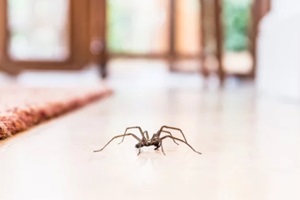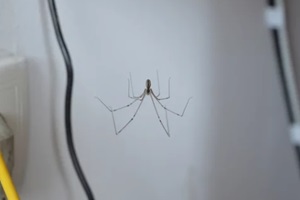 Winter is upon us, but with spring looming around the corner, many families are choosing to wait on their pest control efforts until the weather starts to turn. In reality, winter is a great time to get ahead of many pest problems!
Winter is upon us, but with spring looming around the corner, many families are choosing to wait on their pest control efforts until the weather starts to turn. In reality, winter is a great time to get ahead of many pest problems!
Whether you’re already seeing bothersome cobwebs and craving a clean home, or you want to tackle spiders before they arrive, winter is an ideal time to focus on getting rid of these eight-legged invaders.
Here are some of the most effective targeted methods to control and prevent spiders and other winter bugs from invading Massachusetts residences throughout the winter season. Don’t let snow and cold weather deter you from tackling this issue now!
How Spiders Adapt to Winter
Like many insects, spiders seek warmth when the weather turns cold. The easiest way to achieve this is by heading indoors to the climate-controlled interior that humans enjoy. However, even when spiders find a cozy place to stay, natural phenomena such as atmospheric pressure changes, cool drafts, and a reduction in food supply in the winter still signal their bodies to hunker down until the warmer season.
This state is called diapause, in which the spider goes dormant in a safe space until spring. Because spiders are less active and less likely to flee, winter is the ideal time to combat spiders in your home, both to take care of the cobwebs you can already see and prevent more of them when the weather warms up again.
How to Control Spiders During Winter and Beyond
Spiders make their webs in residential spaces for many reasons, and tackling the underlying attributes that make your home appealing will reduce the number of spiders who choose to live there. Here are some ways you can do this.
Seal Cracks
![]() One of the most effective methods of preventing spiders from entering your home is to eliminate the pathways they use to get there. If you have cracks in the exterior — especially surrounding areas that spiders often frequent, such as nooks and lights — consider sealing them with caulk, mortar, or another material suitable for that environment.
One of the most effective methods of preventing spiders from entering your home is to eliminate the pathways they use to get there. If you have cracks in the exterior — especially surrounding areas that spiders often frequent, such as nooks and lights — consider sealing them with caulk, mortar, or another material suitable for that environment.
Not only does this make spider infiltration more difficult, but it has the added benefit of improving the atmosphere in your home. Without these cracks, your HVAC system can run more efficiently, saving you money and reducing wear on the system.
Change Lighting
Spiders can often be found spinning webs near your lights, both outside and inside. There are many reasons for this behavior. Lights are warm, providing the spider a safe place even in the cold winter.
Additionally, lights commonly attract flying bugs, which can make for a substantial meal should they become tangled in a spider’s web. Thus, spiders are incentivized to create webs near light sources. To help prevent this behavior, change your light bulbs.
Incandescent and high-pressure sodium lamps are much more difficult for insects to see compared to mercury and metal halide bulbs. This simple switch can eliminate spider food sources, disincentivizing them from making a home.
Clean Up
Spiders seek safety; they don’t want to spin their webs out in the open air if they can help it. Instead, they’ll shelter in debris such as sticks, bundles of wood, trash, and untouched tools in the garage. Keep your space clean and open to provide fewer safe hiding spaces for spiders to nest.
This discourages them from taking up residence because they feel vulnerable, and it provides fewer nearby sources with which they can spin their webs. As an added advantage, you’ll discourage other pests, such as mice, in this same manner!
Spray the Perimeter
If your spider problems are becoming overwhelming, you can consider spraying insecticides that are targeted at spiders. One of the industry standard choices is a microencapsulated pyrethroid, which clings to the legs of a spider and gradually releases a toxin that kills them.
 Most insecticides targeting spiders should be sprayed fully around a house to create a barrier that spiders must walk through to build a web in or near the home. However, pyrethroids can target other insects besides spiders, and arachnids are more tolerant of insecticides than many other winter bugs.
Most insecticides targeting spiders should be sprayed fully around a house to create a barrier that spiders must walk through to build a web in or near the home. However, pyrethroids can target other insects besides spiders, and arachnids are more tolerant of insecticides than many other winter bugs.
That’s why it’s best to try the other methods first to see how much of a reduction in spider activity you can achieve before transitioning your strategy to insecticides.
Get Help with Your Winter Bug Problem Before Spring
Whether you have only noticed a few spiders and want to nip the problem in the bud or you are dealing with a full-on spider outbreak, winter is an ideal time to tackle the issue.
The experts at Spartan Animal & Pest Control can help you understand where spiders are coming from and how to stop them from making your home theirs. Contact Spartan to discuss your spider problems and discover a personalized solution that suits your space.



